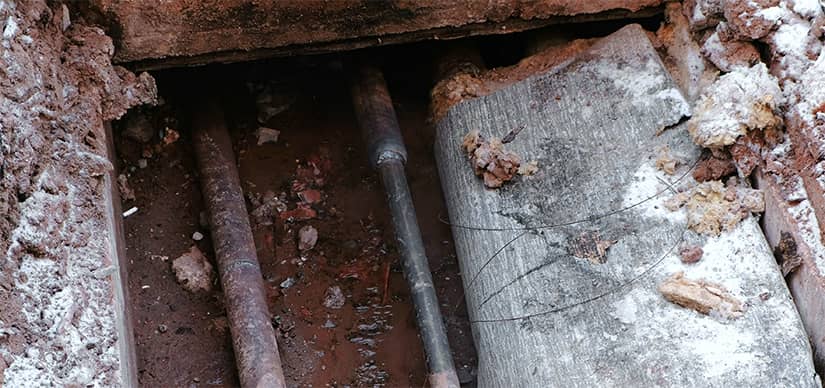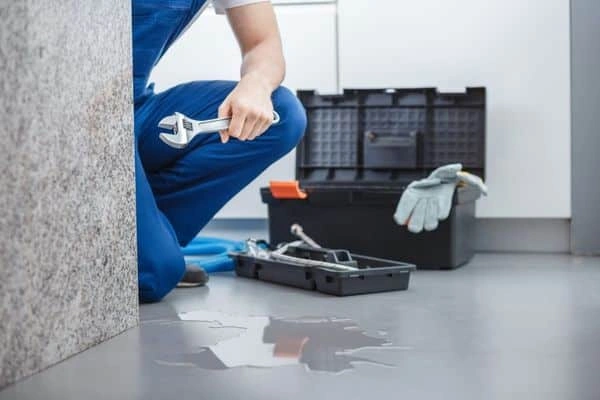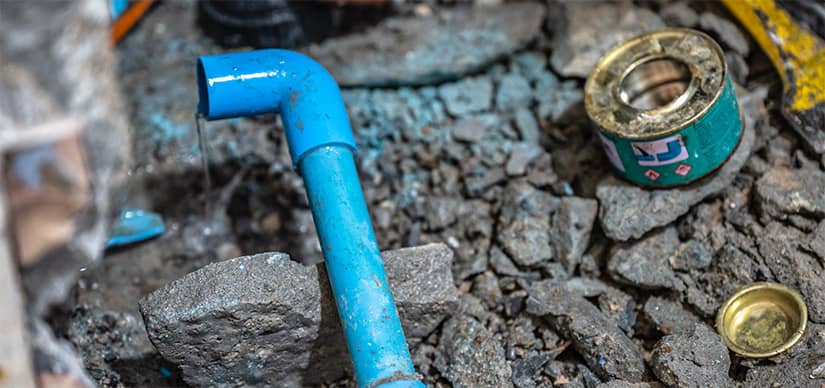Emergency Slab Leak Repair: Quick Action to Prevent Damage
A slab leak occurs when a water pipe beneath the concrete foundation of your home bursts, cracks, or begins to leak. These leaks are typically caused by factors such as corrosion, ground shifting, poor installation, or high water pressure. Slab leaks can be tricky to detect because they often occur out of sight, but their effects can be devastating. If left unchecked, a slab leak can weaken the foundation of your home, lead to mold growth, and cause extensive water damage, making repairs far more costly in the long run.
Recommended reading: The Dangers of DIY Slab Leak Repair: Why You Need a Professional
The importance of slab leak repair cannot be overstated. Acting quickly when you suspect a slab leak can save you from structural damage, skyrocketing water bills, and health risks associated with mold. Slab leaks can also erode the soil around your foundation, causing cracks and even leading to long-term stability issues for your home. That’s why it’s crucial to take immediate steps to address the problem, and this guide will help you understand exactly what to do when you discover a slab leak.
1. Turn Off the Water Supply
The first step when you suspect a slab leak is to immediately shut off the water supply to your home. Locate your home’s main water valve, typically found near the water meter or outside the house. Turning off the water prevents further water damage and reduces the pressure on the damaged pipe, helping to minimize the leak.
- Tip: It’s a good idea to familiarize yourself with the location of your water shut-off valve before any emergency occurs.
2. Look for Signs of Water Damage
Once the water is shut off, inspect your home for any visible signs of water damage that may confirm the presence of a slab leak. Common indicators include:
- Puddles of water around the base of your walls or on the floor.
- Damp or wet spots on carpets, flooring, or near the foundation.
- A noticeable drop in water pressure.
- Unexplained increases in your water bill.
- The sound of running water when all fixtures are turned off.
- Cracks in your walls or foundation that weren’t previously there.
If you observe any of these signs, it’s essential to act quickly to prevent further damage to your home’s structure and plumbing system.
3. Turn Off Electrical Appliances
If water is pooling near electrical outlets, appliances, or other electrical systems, shut off the electricity in the affected areas immediately. This helps avoid the risk of electrical shock or fire. If you’re unsure which areas are affected, it’s safer to turn off the main electrical breaker until the area has been inspected by a professional.
- Warning: Never attempt to handle electrical equipment or appliances that have come into contact with water. Wait for a professional to assess the situation before restoring power to the affected area.
4. Contact a Professional Plumber
Once the water supply is shut off and you’ve identified potential damage, it’s time to contact a professional plumber for emergency slab leak repair, such as All Stars Plumbing. Slab leaks require specialized equipment and expertise to locate the leak’s exact position beneath the concrete foundation. Plumbers often use advanced tools like electronic leak detection devices, infrared cameras, or acoustic listening devices to pinpoint the source of the problem without unnecessary excavation.
5. Prepare for Repairs
Once the plumber arrives and assesses the situation, they will likely recommend one of the following repair methods, depending on the severity and location of the leak:
- Spot Repair: Involves cutting into the slab at the location of the leak to repair the damaged pipe directly. This is ideal for small, isolated leaks.
- Pipe Rerouting: If multiple sections of the pipe are damaged or deteriorated, the plumber may reroute the pipe above ground rather than repairing the section beneath the slab.
- Epoxy Pipe Coating: In some cases, plumbers can apply an epoxy coating inside the damaged pipe to seal leaks without extensive excavation.
Discuss these options with your plumber to determine the best solution for your home.
6. Prevent Future Slab Leaks
Once the immediate leak has been repaired, it’s a good idea to take preventive measures to avoid future slab leaks. Here are some tips:
- Regular Plumbing Inspections: Schedule annual plumbing inspections to catch early signs of leaks or corrosion in your pipes before they become major problems.
- Monitor Water Pressure: High water pressure can stress your pipes and lead to leaks. Install a pressure regulator to ensure your water pressure stays at a safe level.
- Water Softening System: If your area has hard water, minerals can build up inside your pipes and corrode them over time. A water softener can help reduce this buildup and extend the life of your plumbing system.
- Foundation Maintenance: Ensure that your home’s foundation is in good condition and that soil erosion or ground movement is addressed promptly to prevent damage to pipes beneath the slab.
Recommended reading: Process Of Slab Leak Repair
Why You Should Act Fast
Slab leaks can cause extensive damage if not addressed quickly. In addition to structural damage to your home’s foundation, water leaks can lead to mold growth, electrical issues, and increased water bills. Acting swiftly to shut off the water supply and contact a professional plumber can help minimize these risks.
Need Emergency Slab Leak Repair?
If you’ve discovered a slab leak in your home, don’t wait. Contact All Stars Plumbing immediately for fast, reliable emergency slab leak repair. Our team of experts uses the latest technology to locate and fix slab leaks efficiently, minimizing disruption to your home. Call us today to schedule an emergency service and prevent further damage to your property.






